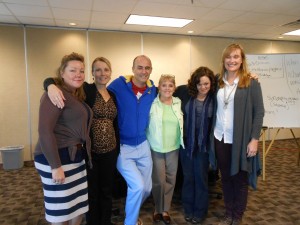Self harm is a pattern of behaviour that, like so many addictive patterns and dysfunctional coping mechanisms, can be hidden in plain view, even in those as young as under 10 yrs old. Here are some important early warning signs, behaviours and influences that may help you catch it sooner and in a way that is helpful to you and your child.
There is always a danger of a child being out of their depth when they are driven by emotion, as the self-regulation function is out of register. So for example when someone is angry they will have elevated levels of adrenaline and noradrenalin in their system, which inhibits the experience of pain. So when they are e.g. cutting themselves they may well cut too deep as they simply do not feel it. Its incredibly important to accept a child’s emotional expression, even if it feels too much or out of order. A child will earn quickly if you help them manage their experience and expression of these emotions respectfully and with boundaries.
If your child is cutting or burning, seek medical help for the wounds; if you feel out of your depth and that you cannot deal with the way your child is behaving then seek support from a child and adolescent psychotherapist (one with integrative arts training is particularly effective for less invasive intervention and assessment) or an EMDR therapist who specialises in working with children. You can also seek support for yourself from an addiction specialist. Trying to deal with it yourself and failing can generate negative emotions, making the child feel even more hopeless and the parent feel useless. Both will foster resentment, which in turn drives the urge to self-harm – a vicious circle.
Please note a child can also self harm by inviting and provoking physical assault from siblings or parents. It is a way to indirectly ventilate emotion, such as anger or hurt, by making another person responsible. If your child (or indeed any member of your family) is perpetually making you want to rage at them or hit them, then they may be using you as a conduit to express their own pain. The acting out is simply a purging of the overwhelm and will not deal with the problem. So the parent who feels ‘better’ after screaming is describing the feeling of empty before inevitably ‘filling up ‘ again. The answer is to treat the pattern as a clue to a hidden issue that if dealt with appropriately can be treated. Again EMDR is particularly effective as a brief and non-invasive trauma intervention. It works with an ‘unconscious’ part of the brain, and can bring about significant changes for a person in terms of how they manage mood and memories, in a relatively short period of time. Highly effective for children as they don’t need to be able to talk well to get well.
I think we need to keep in mind how much pressure children are under to perform in today’s globally competitive world. They are competing physically, mentally, socially, practically…. And children are very quick to criticise and shame one another, and have access to multiple ways to put themselves up by putting another person down. (i.e. bullying, cyber bullying). The impact of negative attention can spread widely and quickly, alienating and scapegoating a child almost overnight. Children know this and are keen to remain ‘in’ with one another, placing them on high alert about what they wear, look like – weight, size, fashion sense, ability, image, spots, hair growth, etc.
Constant exams and testing places them under strain to pass but doesn’t introduce a concept of in-depth learning and consideration, so they are culturally encouraged to skim the surface – by implication, this does not teach them how to cope with deeper emotions. I often meet children who think they are ridiculous and over sensitive for having certain emotional needs or experiences, yet on further exploration I will often find they are displaying and experiencing a ‘normal’ level of affect.
I believe that many children are left to their own devices too much and do not have what I would consider to be a consistent model of a ‘good enough parent’ – providing the temporary regulation, a respectful guide, in a consistent way of a parent who is in good shape themselves. Many parents are over stretched and as a result either the child ends up taking care of the parent (not needing or wanting anything from them) or they sadly neglect the child’s core needs believing that to simply feed them, have a laugh and get them to school is enough. Children’s brains are not fully developed until the end of the teen years so until then they require guidance (decreasing as they get older) from someone they can trust and respect – pie in the sky?
I have met countless children in the middle class demographic, who when they experience profound emotion will seek ways to cope with it that are self-sufficient and appear to be short term. (ie hitting self when angry, punching self, banging head against a wall, scratching, cutting, burning, starving) and their families know they do it have not taken it seriously, often coping with it by making a joke of how sensitive the child is, perhaps in the hope that it will simply ‘go away’. But in my experience these things often graduate into eating disorders, codependence (needy giving), and alcohol and drug abuse and misuse. It is a visible part of the addictive cycle that is awash in today’s culture and it should be dealt with seriously at an early age when there is an opportunity for effective and brief intervention.

